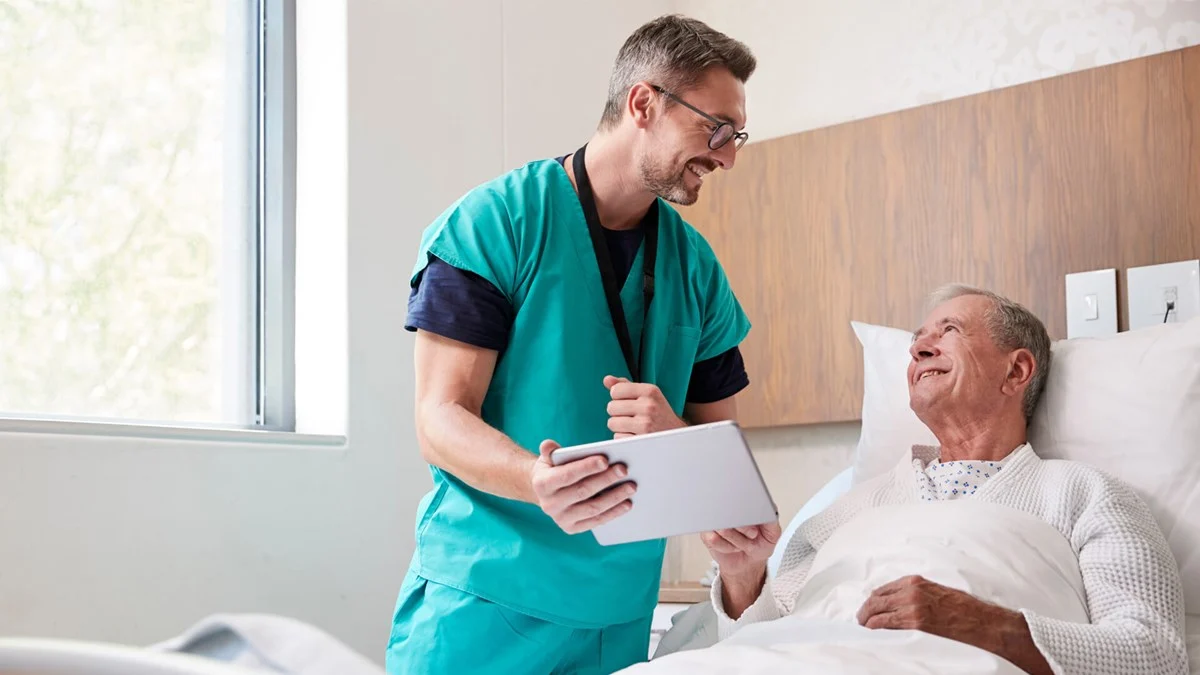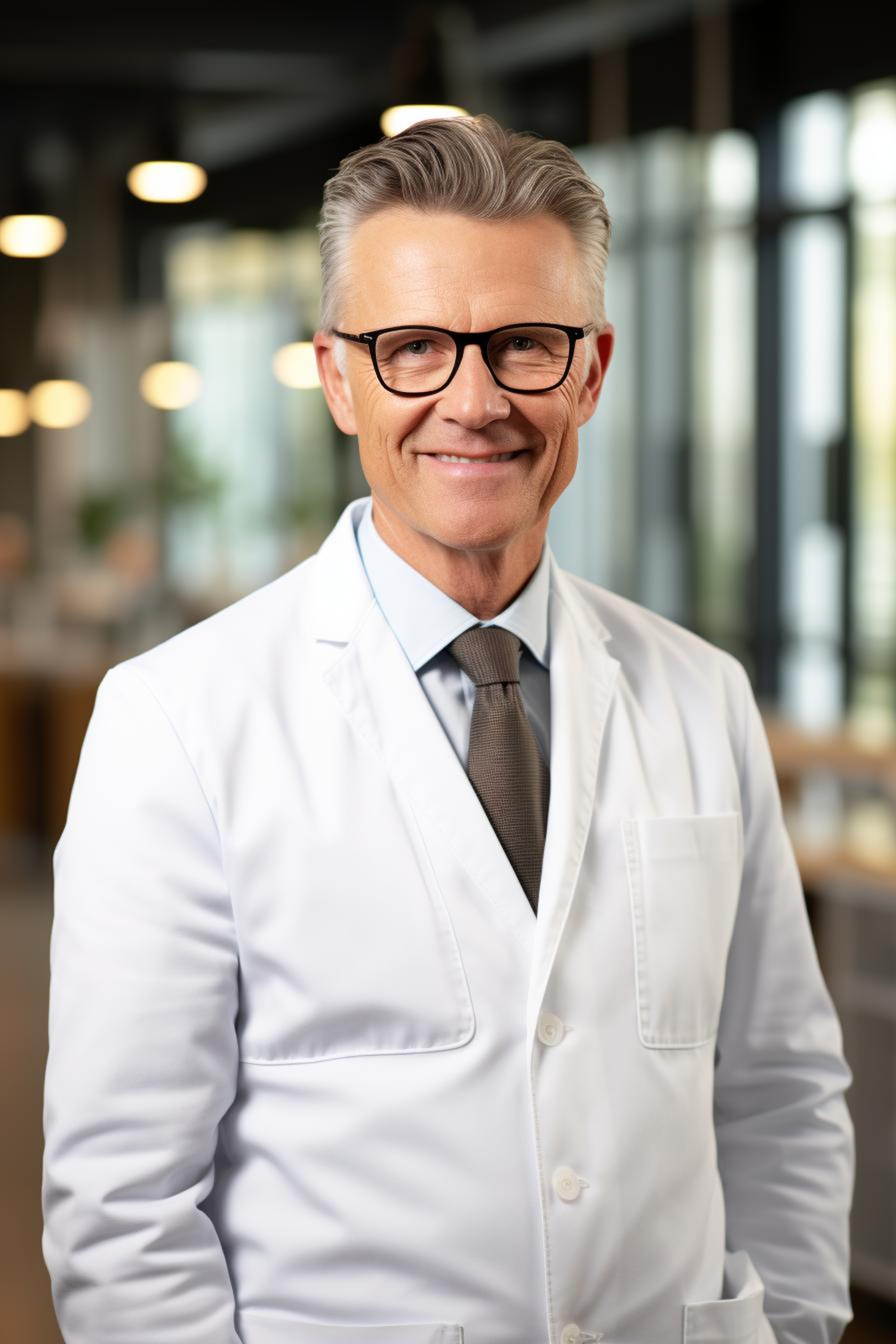Colonoscopy in San Antonio, TX
What is a colonoscopy?
A colonoscopy is a medical procedure that involves the use of a long, flexible tube known as a “scope,” which is inserted into the rectum and navigated through the entire colon (large intestine). Equipped with a light and a camera at its tip, the scope allows doctors to visually inspect the colon’s lining. This procedure is often used to investigate gastrointestinal symptoms such as diarrhea, bleeding, abdominal pain, or unusual x-ray findings.
Colonoscopy is also recommended for individuals without symptoms starting at age 45 or earlier based on personal medical history to screen for colon cancer and polyps. It remains the only preventive measure for colorectal issues. At San Antonio Gastroenterology Associates, our board-certified GI providers specialize in performing colonoscopies. For more information, contact your nearest San Antonio, TX location.

What benefits come from a colonoscopy?
Regular colonoscopy screenings are crucial in preventing colon cancer, especially for those over 45 or with higher risk factors. These screenings offer several significant benefits for both gastrointestinal and general health, including:
- Early detection of colon and rectal cancer
- Identification and removal of abnormal growths
- Diagnosis of conditions like diverticulosis and inflammatory bowel disease (IBD)
- Acting as the most effective method for colon and rectal cancer screening
- Potentially saving lives through early intervention
Thanks to the latest technological advancements, colonoscopies are now performed more quickly, comfortably, and accurately than ever before.
What happens during a colonoscopy?
Before your colonoscopy, your specialist at San Antonio Gastroenterology Associates will provide specific instructions for bowel preparation. Typically, this involves consuming only clear liquids the day before the procedure and using prescribed laxatives to completely cleanse your colon. Following these instructions closely is essential. You may also receive guidance on how to manage your regular medications, particularly if you are taking blood thinners (such as Coumadin, warfarin, Plavix, aspirin, or anti-inflammatories) or if you have diabetes. You may not be able to consume anything by mouth after midnight, except for necessary medications.
You should arrive at the endoscopy center at your local San Antonio Gastroenterology Associates location about 1 to 1.5 hours before your scheduled exam to allow time for paperwork and preparation. You will change into a medical gown, and an intravenous (IV) catheter will be inserted into your arm for sedation. You will be connected to monitors that track your heart rate, blood pressure, pulse, electrocardiogram, breathing, and oxygen levels throughout the procedure.
In the exam room, you will lie on your left side on a stretcher. The IV sedation will be administered gradually to ensure your safety, providing just the right amount needed for you. Once you are sedated, the specialist will perform a rectal exam and gently insert the colonoscope into your rectum. The scope will be advanced through your colon to the junction with the small intestine. A small amount of air will be introduced through the scope to inflate the colon for better visibility. Any residual fluid in the colon can be washed and suctioned out through the scope.
During the procedure, which usually lasts between 15 and 30 minutes, the specialist may perform several actions depending on the findings. These can include taking biopsies, removing polyps, and controlling any bleeding. At the end of the procedure, the specialist will suction out as much air and remaining fluid as possible from your colon.
When will I get my results?
After your colonoscopy, you’ll be taken to a recovery room to be monitored as the sedation wears off. The amount of sedation used and your personal response to it will determine how quickly you become alert, but most patients are ready for discharge within 45 to 60 minutes.
Since you will not be allowed to drive for the rest of the day, make sure you arrange for someone to take you home. You should also avoid working, signing important documents, or engaging in strenuous activities for the rest of the day. Most patients can eat and drink normally after leaving the endoscopy unit, but you will receive specific instructions about activity, diet, and medications before you are discharged.
Once the exam is over, your specialist or nurse will discuss the findings with you. However, due to the effects of sedation, you might not remember the details. It’s a good idea to bring someone with you to hear the results. You will also receive a written report to take home. If any biopsies were taken, you will be informed of the results, usually within a week.
Are there other alternatives to a colonoscopy?
The alternatives to a colonoscopy depend on why the procedure is needed in the first place. Typically, a colonoscopy is the best method for evaluating and treating abnormalities in the colon and is the only preventive measure for colorectal cancer. However, there are other diagnostic tests, such as a barium enema or a virtual CT scan, which can evaluate the colon. These tests, though useful for diagnosis, do not allow for treatment. Any abnormalities found with these methods will still require a colonoscopy or surgical intervention for treatment.
What are the risks of a colonoscopy?
Generally, a colonoscopy is a very safe procedure, with complications occurring in less than 1% of patients. Most complications are not life-threatening, but if they do occur, they may require hospitalization and surgery. Before the procedure, the nursing staff will review a consent form with you. If you have any questions or concerns, you can discuss them with your physician before starting the procedure.
There is a possibility for reactions to the medications used for sedation, which can include allergic reactions, breathing difficulties, effects on the heart and blood pressure, and irritation of the vein where the medication is administered.
Bleeding could occur with the extraction of polyps and biopsies. Significant bleeding, which might require a blood transfusion or hospitalization, is very rare. However, bleeding can happen during the exam or up to two weeks afterward if a polyp is removed.
Another risk is colon perforation or puncture, which might be detected during the exam or later in the day. Most cases of perforation require surgery and hospitalization, but this complication is uncommon, even when polyps are removed.
It is crucial to contact your doctor’s office immediately if you experience symptoms such as worsening abdominal pain, bleeding, or fever after the procedure.
Like any medical test, a colonoscopy is not perfect. There is a small risk that abnormalities, including polyps and cancers, may be missed during the exam. It is essential to continue following up with your specialist at San Antonio Gastroenterology Associates as instructed and to report any new or persistent symptoms.
Colonoscopy FAQs
By what age should you undergo a colonoscopy exam?
It is recommended individuals who are at standard odds of getting colon cancer start scheduling a colonoscopy exam at age 45. However, if your odds for getting colon cancer are more likely or you are showing worrisome signs of colon cancer, our GI specialists might suggest a colon cancer screening earlier than that age.
After 45, when is it recommended you schedule colon cancer screenings?
An anorectal manometry test provides detailed information about the pressure and coordination of the muscles in your rectum and anus. Healthcare providers use these results to diagnose conditions and make treatment decisions related to bowel control problems. After the test, your provider will explain the findings and discuss the appropriate next steps based on the results.
Will a colonoscopy be an uncomfortable exam?
Sedation will be given to you ahead of your colon exam to help ensure your comfort while undergoing your procedure. Depending on the type of sedation given, a number of people feel an extremely relaxed state or become sleepy, and many have no recollection of their procedure. You can speak with your GI specialist about what you can experience during your consultation.
What’s the average recovery period for a colorectal exam?
Most of the time, you can expect about a full 24 hours to recuperate after a colonoscopy, and a number of patients are well enough to start their daily routine the following day. If colon polyps are removed, recovery may last about a week. It is not uncommon to experience some GI irritation following a colonoscopy, such as cramping and bloating. Our San Antonio Gastroenterology Associates doctors will give you more information about what you can expect during your recovery.
